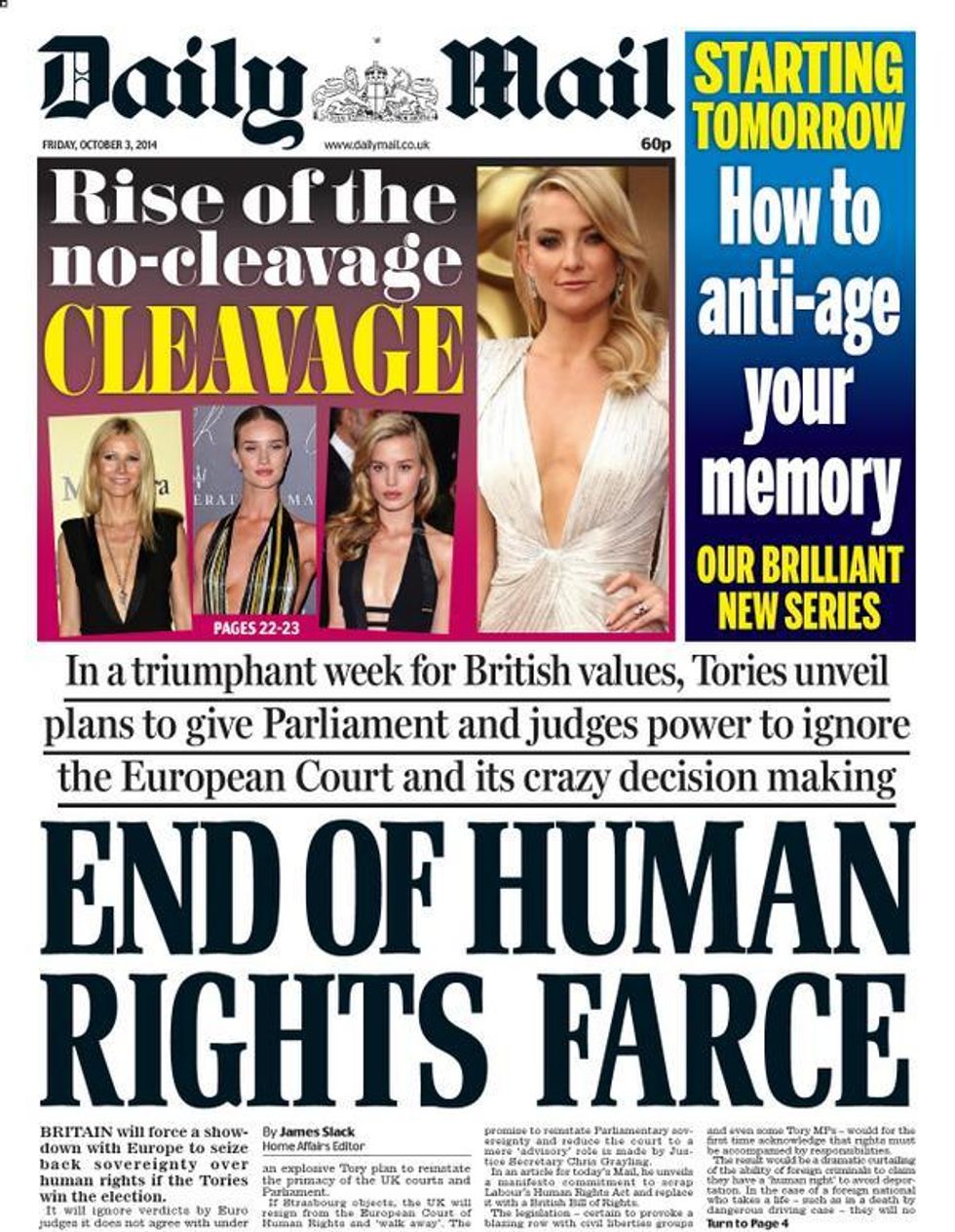News
Dina Rickman
Oct 03, 2014

The Conservative Party today announced plans to scrap the Human Rights Act and replace it with a British Bill of Rights if they win the next election.
According to Justice Secretary Chris Grayling this would stop British laws being "overruled" by European judges - and Britain could quit the European Court of Human Rights if Westminster's sovereignty is not recognised.
The Conservative Party has long been opposed to the HRA, the 1998 act which effectively enshrines the protections in the European Convention on Human Rights, drawn up by lawyers in the wake of the Second World War in an attempt to prevent the atrocities committed by the Nazis every happening again, into law.
The plans for a British Bill of Rights, which will be detailed in a draft bill due to be published before Christmas, were welcomed by the Daily Express with this headline.
In an editorial they argued the HRA had "helped the likes of Abu Qatada avoid deportation to stand trial on terror charges. It has also helped countless illegal immigrants to stay here, many of them risibly claiming that their 'right to a family life' would be contravened if they were made to return home".
This was the Daily Mail, who pre-empted much of the criticism of the move, arguing in a leader column: "Inevitably, the many lawyers and campaign groups who rely on the human rights industry to make a fat living are already squealing."
In an editorial the Times (£) declared David Cameron was right to "seize on this issue", adding: "The British parliament has proved to be powerless to resist the judgments from Europe."
Lawyers, however, are less happily. Adam Wagner, human rights and public law barrister at 1 Crown Office Row and the founder of the UK Human Rights Blog told i100.co.uk the policy was "incoherent and anarchic" and had "three major flaws".
First, the plan to tell Parliament that European Court of Human Rights judgments are 'advisory' is in clear breach of the UK’s international legal obligations under the European Convention on Human Rights.
Secondly, limiting the application of human rights law to 'serious' cases and making them subject to 'civic responsibilities' is really a way to restrict rights to people the government likes. Rights will be rebalanced to fit with the ideological leanings of one section of the Tory Party. The intention of the ECHR was to protect minorities from the tyranny of the majority. In this proposal, the majority strikes back.
Thirdly, devolution could undermine this entire proposal anyway. People in Scotland, Wales and Northern Ireland have a good argument that Westminster has no power to fiddle with fundamental rights without their consent. The English would end up losing many of the rights which their neighbours will continue to enjoy.
Meanwhile, the former Conservative Attorney General Dominic Grieve, who was sacked in July's reshuffle, told the Guardian the plans were "unworkable and will damage the UK’s international reputation".
Liberty had this to say:
The proposals are legally illiterate, politically provocative and designed to put us on a collision course with the Court of Human Rights and likely lead to the UK’s ultimate departure from the Convention on Human Rights and the Council of Europe. They will also further destabilise the Union.
Still, at least the Daily Star is keeping everything in perspective.
Top 100
The Conversation (0)

















